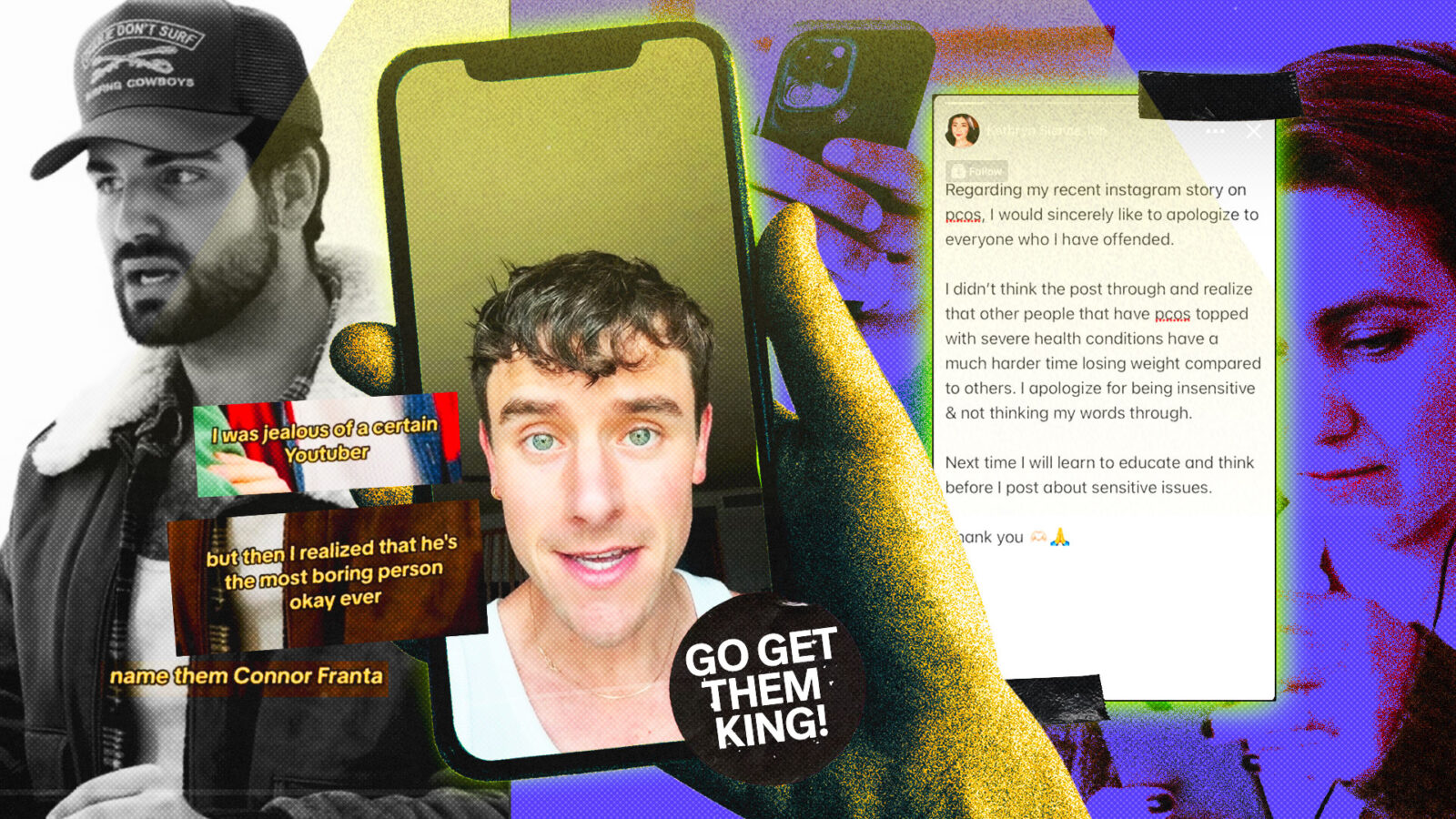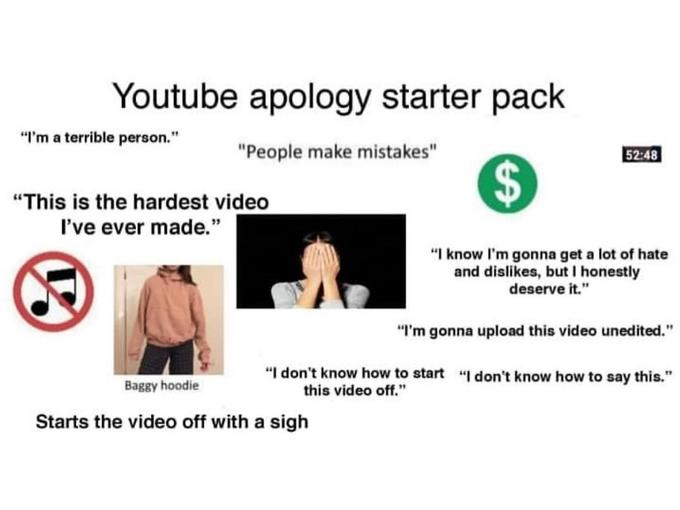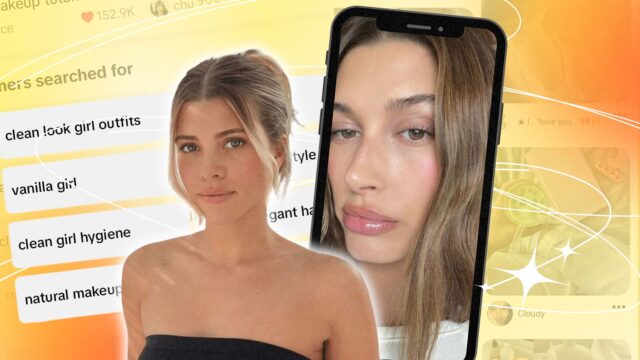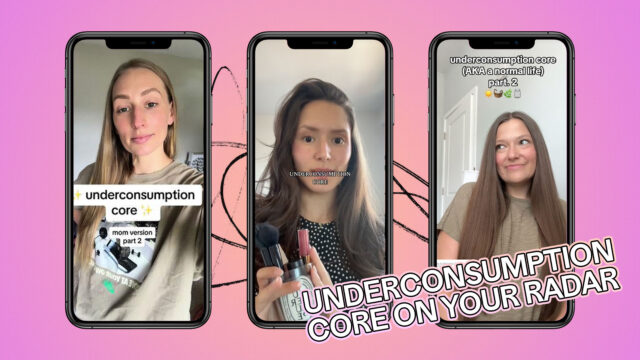Public platforms have made us think we’re invincible.
Related: Here’s A Reminder That You Shouldn’t Always Take Everything You See On Social Media At Face Value
We laugh and we make jokes online, but for real, how do creators—and in general we—get away with thinking they can insult other people so easily? Is it just because we think it’s not real if it’s on the Internet? Over the last week or so, two content creators have made some comments that really signify how unabashed we’ve gotten as a society with our willingness to put others down for validation online. And it got us asking some questions.
SO, WHAT’S THE SITCH?
A Cebu-based content creator, Kat Sienna, took to Instagram to voice her opinion that people with PCOS (polycystic ovary syndrome) are just “fat and lazy,” which is, immediately, a wild and misinformed assumption to make. She posted an apology note to her stories soon after, saying she was being insensitive and didn’t think things through.
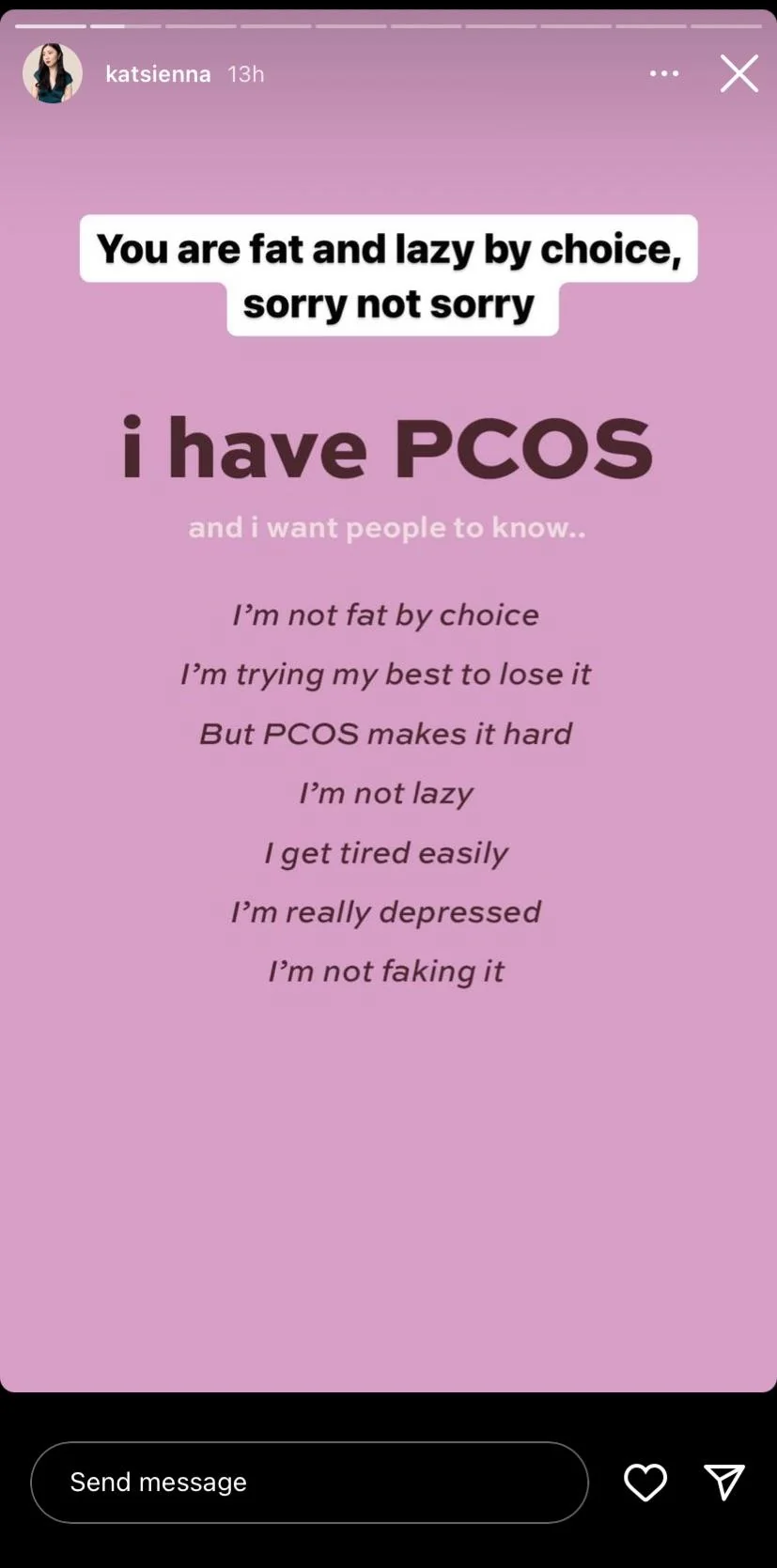
On the Western side of things, internet personalty Daniel Preda, the ex-boyfriend of creator Joey Graceffa, started off a chain of influencer drama when he called YouTuber Connor Franta “the most boring person [he’s] ever met” while being interviewed by Joey.
@connorfranta #stitch with @misterpreda ♬ original sound – Connor Franta
Now you don’t have to know all the details of each incident. And this isn’t only a personal slight to these specific people, but rather an attempt to examine how we got here. Because we’ve had our moments, too. They, and creators in general, are not the only ones guilty of freely broadcasting insulting “opinions” to a large audience—or any audience, for that matter.
If anything, why are we as social-media savvy individuals becoming more and more tactless and rude online? Check any TikTok comment section and you’ll find people saying all sorts of insulting things for the sake of humor. From fat-shaming to pointing out acne, there’s a strange wave of meanness signifying this era of social media. What’s happening? We may not have a definitive answer, but we do have a few questions for people and creators that don’t ruminate on a thought before sending it out to the world.
WHERE DO YOU GET THE AUDACITY?
We get it—there’s a certain thrill that comes with receiving validation from other people. Whether you get them to agree or laugh, we so badly crave connection that perhaps, sometimes, it clouds our judgment. We prioritize letting our thoughts be known, making the joke, or getting the engagement over other people’s feelings.
Imagine calling people who have a chronic condition that literally affects hormones and weight just fat and lazy. It’s perplexing trying to figure out where people get the audacity to not only openly shame people online but also insult others based on misinformed assumptions. There’s also a practice on TikTok where they comment “post this on IG Reels” because they know a certain TikTok would get more outright negative comments on the other platform.
Whether it’s a spur-of-the-moment decision or a thoughtless post, what makes someone think it’s something they should say out loud? Is it a sense of superiority exacerbated by the fact that people seem to like them online and they think this is a way to get more attention?
WHAT ABOUT BEING ON THE INTERNET MAKES YOU THINK YOU’RE INVINCIBLE?
The internet has made us so addicted to making fun of normal going people and dehumanizing them in the most casually spoken extreme cruel ways 💀 it's so unbearable and seeing it time and time again is so taxing on my brain
— 𝖇𝖞 𝖙𝖍𝖊 𝖓𝖎𝖓𝖊 𝖍𝖊 𝖍𝖎𝖙 𝖙𝖍𝖊 𝖉𝖆𝖇 ✧ (@VVizardz) March 30, 2024
In this digital era where “cyberbullying” is met with scoffs and eyerolls (because it’s all just in good fun, apparently), we’ve all gotten far too comfortable being mean and rude in social media spaces, and in this case, having a platform seems like it just amplified people’s desire to lord themselves over others. We’re turning into narcissists, and social media anonymity is making us far too comfortable with saying cruel things—whether we mean it or not. Kat Sienna even admitted that she was projecting, citing her own struggles with changing her lifestyle.
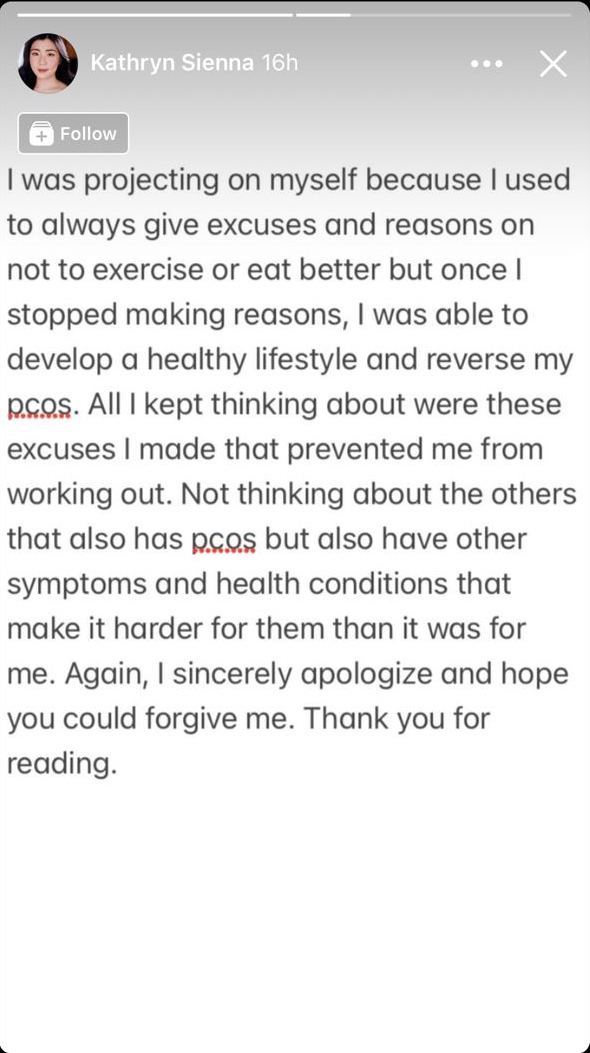
And yes, people have the right to voice their opinions and perspectives—we’ll always advocate for freedom of thought and discussion. There’s always the opportunity to disagree, to correct, to understand. But being able to hide behind a screen makes us braver than we would be in real life—for better or for worse.
WHAT DOES IT GET YOU?
Does it make you feel better about yourself? For people with a platform, does it get you the bag? And how do you reconcile that with causing a rift with other people or even causing them harm? If we’re ever in a position that gets us prioritizing money or social media validation over being respectful and kind towards other people when we can be, we’d take a serious moment to reflect on what kind of impact we want to have on other people.
WHERE DO YOU GO FROM HERE?
We’re all too familiar with the influencer apologies. We get them in droves. But how many of them are well and truly sincere—and how many of them are just done for damage control in an effort to reign in the narrative? The best apology is changed behavior, so it’s possible to allow a bit of grace to people who make mistakes. And to be fair, it’s so easy for us to forget what other people do. Just look at all the people who still have platforms. But that’s a whole other story.
But what does all this mean for us, though? Why should we care about these people and what they do? Well, frankly because it’s so easy for us to become them. This is less of a haughty, guilt-tripping PSA, but more of a questioning of current culture, and a warning as to the path any of us can go down on. Anyone on social media can be susceptible to its negative effects, from projecting our own insecurities to putting others down without hesitation. We see ourselves value numbers more and more, and not because it sustains us financially like it does for many creators, but because it makes us feel better about ourselves.
And that reliance on social media to make us feel good about ourselves, often trickling down into thinking we’re much better than other people, that’s what leads us to being so quick, so open, so willing, to insult, to hurt others without a second thought. (Or, the second thought comes once you’re #cancelled.) Isn’t that just so bleak?
Continue Reading: Some Things To Keep In Mind When We Raise Issues on Social Media
